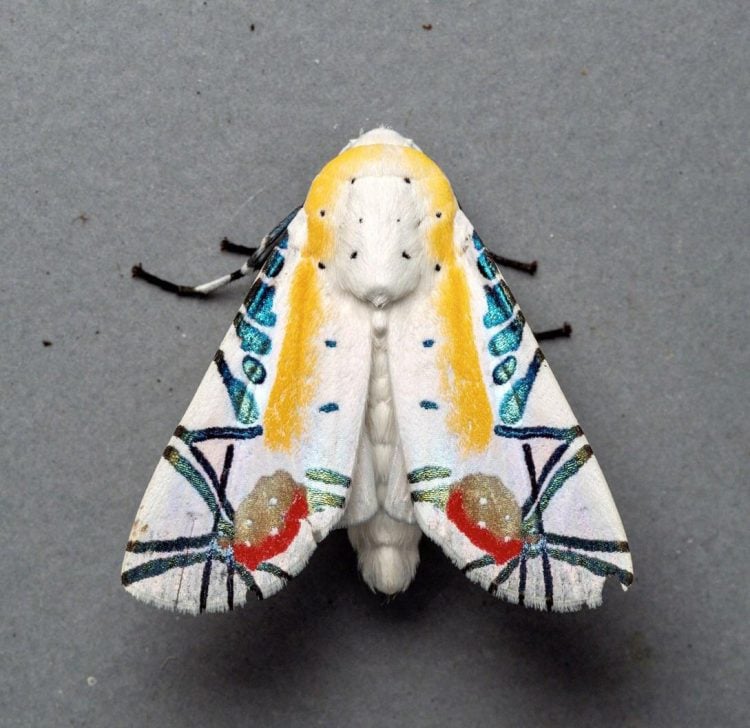By Spooky on December 15th, 2023 Category: Animals
Baorisa hieroglyphica, also known as the Picasso moth, is a species of moth named after the famous Spanish painter Pablo Picasso because of its unusually artistic wing patterns.
First described by British entomologist Frederic Moore in 1882, the Picasso moth is native to Southeast Asia and Northern India. Like most moths, Baorisa hieroglyphica is a nocturnal insect that feeds mostly on the nectar of various plants. Arguably the most beautiful of the Noctuid moths (Noctuidae family), this stunning-looking insect has been dubbed the most interesting moth in the world. The species’ scientific name ‘hieroglyphica’ refers to the striking geometric lines and shapes on its fore wings, while its common name was inspired by the blotches, strips, and dots of color that hint at the work of a talented painter.

Art lovers familiar with Picasso’s work would tell you that the artistic patterns of Baorisa hieroglyphica don’t really have much in common with the Spanish artist’s style, but that was never the point. Vasili Kandinski seems like a much better stylistic match, but Picasso is a much bigger name that transcends the art world, one that is much more evocative of the artistic beauty of the moth.
We’ve featured a lot of interesting moth wing patterns on Oddity Central, from species that look like twig fragments or dead leaves, to some that depict flies feeding on bird droppings. They all have camouflage purposes, but in the case of the Picasso moth, the role of its pattern is still unclear. Some speculate that it depicts a red insect head with antennae and legs, but it’s not very clear.
>>> Read full article>>>
Copyright for syndicated content belongs to the linked Source : OddityCentral – https://www.odditycentral.com/animals/the-picasso-moth-is-truly-a-living-work-of-art.html?utm_source=rss&utm_medium=rss&utm_campaign=the-picasso-moth-is-truly-a-living-work-of-art










